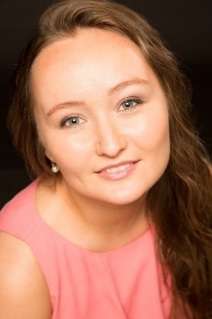|
Back
The Brilliance of Baroque Melbourne
Elisabeth Murdoch Hall, Melbourne Recital Centre
10/15/2016 - & October 8 (Sydney), 10 (Brisbane), 12, 18 (Sydney), 2016
Nicola Porpora: In caelo stele clare fulgescant
Johann Sebastian Bach: Orchestral Suite No 1 in C Major, BWV 1066
George Frideric Handel: Salve Regina, HWV241 – Il trionfo del Tempo e del Disinganno, HWV46a: “Un pensiero nemico di pace” – Apollo e Dafne, HWV122: “Felicissima quest’alma” – Sonata No 5 in B-flat major, HWV288 – Alessandro, HWV21: “Alla sua gabbia d’oro” & “Brill nell’alma”
Antonio Vivaldi: Ottone in Villa, RV729: Sinfonia
Julia Lezhneva (Soprano)
Australian Chamber Orchestra, Richard Tognetti (Director & Violin)

J. Lezhneva (© Courtesy ACO)
A capacity audience filled the Melbourne Recital Centre for this much-awaited concert by the ACO and dazzling young Russian soprano Julia Lezhneva. For this series of performances, the orchestra play on gut strings and the wind players on replicas of original instruments. Richard Tognetti’s 1743 Guarneri del Gesù violin joined by the ACO’s impressive array of exquisite period instruments was further augmented by harpsichord, chamber organ, theorbo, oboes and bassoon. Together, they aimed to recreate something of a hint at how these pieces may have sounded when first performed.
The concert opened with the four-movement Porpora piece a rarity on the concert platform and a style of singing far removed from the regular repertoire. Known as the gallant, this style requires the singer to be almost an athlete in the use of the voice as another instrument of the orchestra. Massively long phrases, huge leaps in pitch and seemingly endless trills and flourishes make this music both thrilling and demanding to listen to. For such a young singer, the immediate observation of Ms. Lezhneva’s performance is to admire her confidence in delivery. She appears entirely comfortable with the piece and absolutely relaxed with the strenuous demands of the style. Her technique is a finely balanced combination of exceptionally deep breath control and astonishing agility, producing an overall impression of tranquillity. The middle register of her voice is rich and lustrous whereas the infrequently used upper register is powerful and vibrant.
At the conclusion of this mini marathon of super-human singing, the audience exploded with the first of the many vocal acclamations which punctuated this evening.
The major orchestral piece of the concert followed, led by Mr. Tognetti whose dazzling ability on the violin was supplemented perfectly by the addition of wind instruments. Reaching a full complement of nearly twenty players on stage, the ensemble delivered JS Bach’s Orchestral Suite No 1 in C major. It is a series of interpretations of the French dances of the period and is stylistically quite separate to the dour, serious Bach we associate with much of the liturgical music. Certainly, there are moments of sombre contemplation within these movements but overall, there is a joyousness and dazzle in which the leadership of the orchestra rotates through violin, oboe and bassoon and even into the lower range of the string section. This gave the audience a great opportunity to appreciate the subtlety and softness achieved by re-stringing the instruments aiming for that authenticity of period sound.
The first half of the performance concluded with Ms. Lezhneva giving the first of the Handel pieces in a style which must surely be regarded as her signature. Poised, self-assured and entirely at ease, she soared into the intricate melodic patterns of the vocal line, reaching the conclusion of the gentle final movement with the audience in absolute silence hanging on every note. Again, there was an eruption of vocal responses and thunderous applause.
The second half commenced with Vivaldi’s Sinfonia from Ottone in villa providing a sparkling counter to the quietude of the first half. This orchestra justly deserves to be praised as one of the world’s leading chamber ensembles for it is in pieces like this that we truly appreciate its ability to not only deliver technically accurate and intellectual performances but to outright dazzle with entertainment and showmanship.
The rest of the concert was of music by Handel with Ms. Lezhneva giving excerpts from oratorio and opera while the orchestra offered a beautiful reading of the Handel Sonata in B-flat major. This was well rewarded as was all their playing throughout this show of Baroque brilliance.
In the operatic repertoire, we heard a different aspect to the scholarly relaxation of the soprano’s tone in the first half. Aggression, passion and high energy drew the audience into a world of warriors and political intrigue in the case of the two excerpts from Alessandro. We saw that Ms. Lezhneva would be a fascinating interpreter upon the opera stage. The enthusiasm for her performance was such that much of the audience leapt vocally to their feet at the conclusion of this programmed part of the concert and the singer was called back so many times that there was a clear reluctance for the performance to end. A short encore culminated in a hugely admired rendition of the “Lascia ch’io pianga” from Rinaldo at which point while wishing for more, nobody could have made further demands of a soloist who had given her all in this music and must have been quite exhausted despite the serenity and smiles of her appearance.
For orchestra and soloist, this concert was a triumph; a show of the brilliance of the Baroque and the unarguable brilliance of the orchestra.
Gregory Pritchard
|